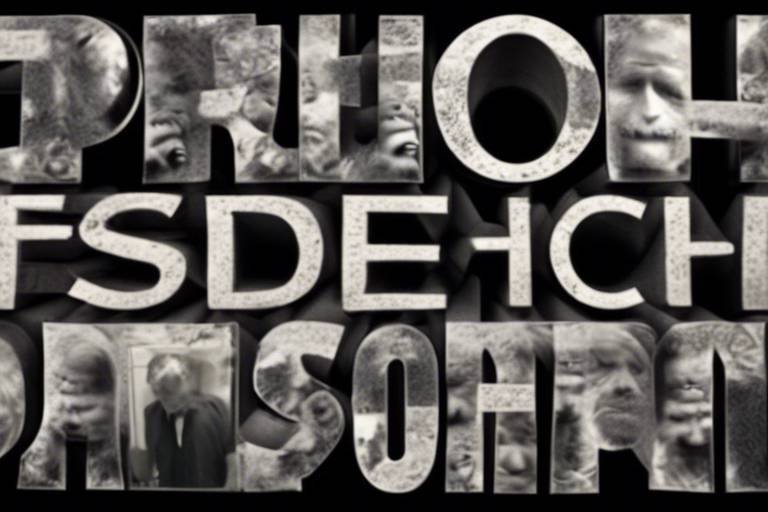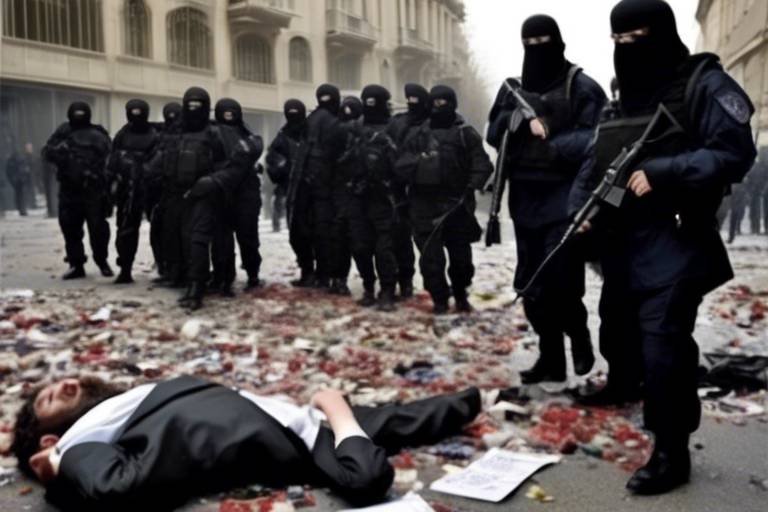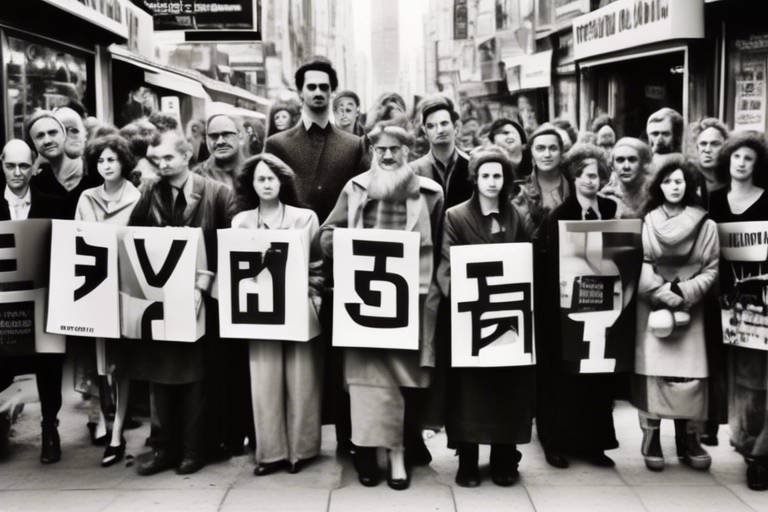Philosophy and Politics: An Inquiry into Humanitarian Interventions
In a world rife with conflict and suffering, the concept of humanitarian intervention often stands at the crossroads of philosophy and politics. It raises profound questions about our moral obligations to others, particularly when human rights are at stake. Are we, as a global community, responsible for intervening in the affairs of sovereign nations when atrocities occur? This inquiry delves deep into the ethical foundations, historical precedents, and the implications of such interventions on global governance and human rights.
Humanitarian interventions are not merely political maneuvers; they are deeply rooted in ethical considerations that challenge our understanding of state sovereignty and moral responsibility. When we look at the philosophical principles that guide these interventions, we encounter concepts like just war theory, which provides a framework for evaluating the legitimacy of military actions. Just war theory asserts that war can only be justified under certain conditions, such as the need to protect innocent lives. This raises an essential question: how do we balance the right of a state to govern itself against the imperative to protect human dignity and rights?
Throughout history, significant humanitarian interventions have sparked extensive debates regarding their legitimacy and efficacy. From the intervention in Kosovo to the more recent actions in Syria, each case presents unique challenges and philosophical dilemmas. The motivations behind these interventions often reflect a complex interplay of ethical considerations and political agendas, leading to questions about the true nature of humanitarianism in an increasingly interconnected world.
As we navigate these waters, it becomes clear that the lessons learned from past interventions, particularly the catastrophic events of the Rwandan genocide, are crucial. The international community's response—or lack thereof—during this tragedy serves as a poignant reminder of the consequences of inaction. What does it mean to be a bystander when human lives are at stake? The moral obligation to act becomes even more pressing when we consider the philosophical insights that emphasize the need for a proactive stance in preventing atrocities.
In exploring the role of international law, we must also consider how legal frameworks intersect with humanitarian interventions. The Responsibility to Protect (R2P) doctrine, which emerged in the early 2000s, is a significant development in this regard. It posits that the international community has a duty to intervene when a state fails to protect its citizens from genocide, war crimes, ethnic cleansing, and crimes against humanity. However, the implementation of R2P is fraught with challenges, raising questions about its philosophical underpinnings and the political will to act.
Critiques of international law highlight its limitations in facilitating effective humanitarian interventions. The tension between state sovereignty and the need for intervention often leads to a stalemate, as powerful nations may choose to prioritize their interests over humanitarian concerns. This dynamic underscores the philosophical arguments surrounding power, justice, and the ethical implications of intervention.
- What is humanitarian intervention? Humanitarian intervention refers to the use of military force by a state or group of states to protect civilians in another state from severe human rights violations.
- What are the ethical considerations surrounding humanitarian interventions? Ethical considerations include the principles of just war theory, the moral responsibility to protect human rights, and the balance between state sovereignty and humanitarian needs.
- How does international law relate to humanitarian interventions? International law provides frameworks like the Responsibility to Protect (R2P) doctrine, which outlines when and how interventions should occur, although its enforcement can be contentious.
- What lessons were learned from the Rwandan genocide? The Rwandan genocide highlighted the consequences of inaction and the urgent need for timely interventions, emphasizing the moral obligations of the global community.

The Ethical Foundations of Humanitarian Interventions
When we dive into the murky waters of humanitarian interventions, we quickly realize that the ethical foundations are anything but straightforward. At the heart of this discourse lies a tug-of-war between state sovereignty and human rights. Imagine a world where countries could intervene in one another’s affairs at will; it sounds chaotic, right? Yet, when atrocities unfold, the moral imperative to act can feel overwhelmingly compelling. This dilemma raises pivotal questions: Should the international community step in to save lives, even if it means violating a nation's sovereignty? Or does the principle of non-interference take precedence, leaving vulnerable populations at the mercy of their governments?
Philosophers have long grappled with these questions, particularly through the lens of just war theory. This theory posits that wars are justifiable only under certain conditions, emphasizing the need for a legitimate cause, proportionality, and the pursuit of peace. In the context of humanitarian interventions, this theory challenges us to consider whether the reasons for intervention—often framed as the protection of human rights—are robust enough to warrant military action. It’s a bit like weighing the pros and cons of jumping into a freezing lake to save someone who’s drowning: the intention is noble, but the risks involved can be daunting.
Moreover, the concept of moral responsibility plays a crucial role in shaping our understanding of humanitarian interventions. If we have the means to prevent suffering, do we not bear a moral obligation to act? This notion resonates strongly in the aftermath of humanitarian crises. For instance, the global outcry following the Rwandan genocide highlighted a glaring failure of the international community to intervene in a timely manner. Many argued that the world had a moral duty to prevent the massacre of innocent lives, which brings us to the heart of our ethical inquiry: how do we balance this moral responsibility with the complexities of international law and state sovereignty?
In contemplating these ethical foundations, we must also consider the implications of inaction. The philosophical debates surrounding humanitarian interventions often pivot on the consequences of doing nothing. The concept of collective responsibility emerges here, suggesting that if a community or nation stands idly by while atrocities unfold, it shares in the guilt of those acts. This perspective can be quite unsettling, as it implies that we are all interconnected in our moral obligations to one another, transcending borders and political affiliations.
To further unpack these ethical considerations, we can look at a few key principles that guide humanitarian interventions:
- Just Cause: There must be a legitimate reason for intervention, such as preventing mass atrocities or severe human rights violations.
- Right Intention: The primary motive should be to alleviate human suffering, not to pursue political or economic interests.
- Last Resort: Military intervention should only occur when all other diplomatic options have been exhausted.
- Proportionality: The scale and intensity of the intervention should be proportional to the threat faced by the population in need.
As we navigate the ethical landscape of humanitarian interventions, it becomes clear that these principles are not just abstract ideas; they are essential for guiding action in a world rife with conflict and suffering. The challenge lies in applying these principles consistently, as the geopolitical context often complicates straightforward ethical reasoning. Ultimately, the question remains: how do we, as a global community, reconcile our moral imperatives with the realities of international politics?
- What is the primary ethical dilemma in humanitarian interventions? The primary ethical dilemma revolves around balancing state sovereignty with the moral obligation to protect human rights.
- How does just war theory apply to humanitarian interventions? Just war theory provides a framework for evaluating the legitimacy of military actions, emphasizing just cause, right intention, and proportionality.
- What role does moral responsibility play in these interventions? Moral responsibility compels nations to act when they have the means to prevent suffering, raising questions about the consequences of inaction.
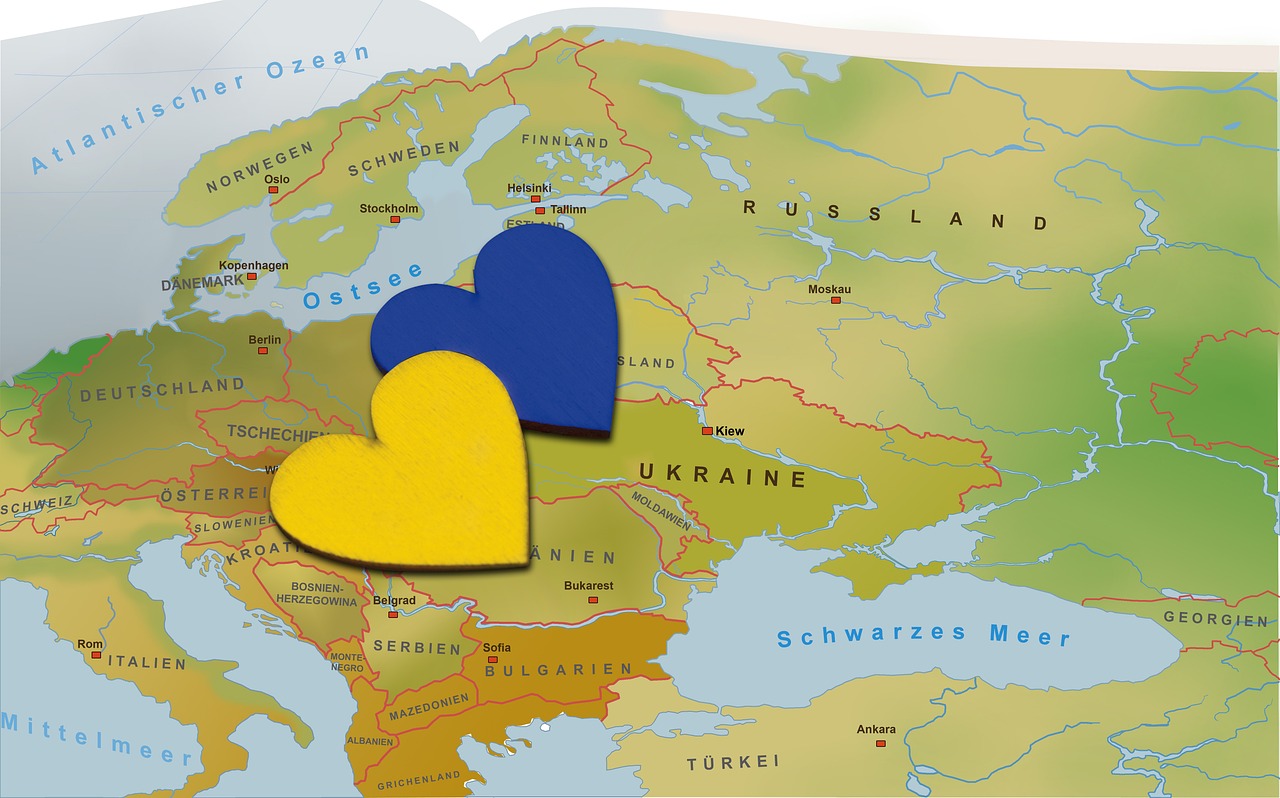
Historical Context of Humanitarian Interventions
The concept of humanitarian intervention is not a modern phenomenon; it has deep historical roots that reflect the evolving nature of international relations, ethics, and human rights. Throughout history, there have been numerous instances where nations or coalitions have intervened in the affairs of other states under the pretext of protecting human rights or preventing atrocities. These interventions are often steeped in complex motivations, from genuine moral obligations to strategic interests.
One of the earliest examples of humanitarian intervention can be traced back to the 19th century, during the Greek War of Independence (1821-1832). European powers, motivated by a mix of humanitarian concerns and their geopolitical interests, intervened to support Greek rebels against Ottoman rule. This marked a significant shift in how states viewed their responsibilities towards other nations and populations, laying the groundwork for future interventions.
Fast forward to the 20th century, and we witness a series of interventions that would further shape the discourse around humanitarian actions. The most notable among these include:
- The Vietnam War (1955-1975): Initially framed as a fight against communism, it raised profound questions about the ethics of intervention and the consequences of foreign involvement in civil conflicts.
- The NATO intervention in Kosovo (1999): This intervention was justified on humanitarian grounds to prevent ethnic cleansing, sparking debates about the legality and morality of bypassing the United Nations.
- The intervention in Libya (2011): Initially aimed at protecting civilians during the civil uprising, it led to significant discussions about the outcomes of intervention and the responsibilities that come with it.
Each of these interventions has contributed to the ongoing philosophical debates surrounding the legitimacy, efficacy, and ethical implications of humanitarian actions. Critics often argue that interventions are cloaked in humanitarian rhetoric but are driven by ulterior motives, such as political gain or resource acquisition. This skepticism is crucial, as it raises essential questions about the true nature of humanitarian interventions: Are they genuinely altruistic, or are they a guise for power politics?
Moreover, the historical context of humanitarian interventions reveals a tension between state sovereignty and the responsibility to protect. The principle of sovereignty has traditionally been a cornerstone of international law, but instances of mass atrocities have led to a reevaluation of this principle. The emergence of doctrines like the Responsibility to Protect (R2P) highlights this shift, suggesting that the international community has a moral obligation to intervene when a state fails to protect its citizens from genocide, war crimes, ethnic cleansing, and crimes against humanity.
In summary, the historical context of humanitarian interventions is rich and complex. It reflects a broader narrative about the evolving responsibilities of states towards one another and the moral imperatives that drive interventionist policies. As we move forward, it becomes increasingly important to critically assess these interventions, not only through the lens of historical precedent but also in light of contemporary geopolitical dynamics.
- What is humanitarian intervention? - Humanitarian intervention refers to actions taken by states or international organizations to prevent or stop human rights violations in another country, often without the consent of the host nation.
- What are some historical examples of humanitarian intervention? - Notable examples include the interventions in Kosovo, Libya, and the Greek War of Independence.
- What is the Responsibility to Protect (R2P)? - R2P is a global political commitment to prevent genocide, war crimes, ethnic cleansing, and crimes against humanity, asserting that the international community has a responsibility to intervene when a state fails to protect its citizens.
- Are humanitarian interventions always effective? - The effectiveness of humanitarian interventions varies widely; while some may achieve their goals, others can lead to unintended consequences, including prolonged conflict and instability.

Case Study: The Rwandan Genocide
The Rwandan genocide, which unfolded over a mere 100 days in 1994, stands as one of the darkest chapters in modern history. In this period, an estimated 800,000 Tutsis and moderate Hutus were brutally murdered in a campaign fueled by ethnic hatred. This horrific event not only shocked the world but also ignited a fierce debate about the role of humanitarian intervention and the moral obligations of nations in the face of such atrocities. As we delve into this case study, we must ask ourselves: what went wrong, and what can we learn from it?
At the core of the international response—or lack thereof—was a complex interplay of political interests, ethical considerations, and the limitations of international law. Despite clear warnings from various sources, including the United Nations peacekeeping forces on the ground, the global community largely failed to act decisively. This inaction raises critical questions about the responsibilities of powerful nations and organizations in preventing genocide. Were they paralyzed by the fear of overstepping national sovereignty, or was it simply a lack of political will?
To better understand the implications of the Rwandan genocide, we can examine the motivations behind the international community's response. The following table summarizes key events during the genocide and the corresponding international actions:
| Date | Event | International Response |
|---|---|---|
| April 6, 1994 | Assassination of President Habyarimana | UNAMIR peacekeeping forces present but limited action taken |
| April 7, 1994 | Start of the genocide | UN Security Council debates but fails to intervene |
| May 1994 | Mass killings intensify | UNAMIR troops reduced from 2,500 to 270 |
| July 1994 | End of genocide as RPF takes control | Delayed international intervention, leading to humanitarian crisis |
This table illustrates the stark contrast between the escalating violence on the ground and the hesitance of the international community to intervene effectively. The philosophical implications of this inaction are profound: how can we justify the failure to protect innocent lives when the moral imperative to act is so clear? The Rwandan genocide serves as a poignant reminder of the consequences of inaction and the ethical dilemmas that arise when weighing state sovereignty against the urgent need to protect human rights.
In reflecting upon the lessons learned from Rwanda, it becomes evident that the international community must adopt a more proactive stance in preventing future atrocities. This means not only being prepared to intervene when necessary but also establishing robust mechanisms for early warning and response. The philosophical insights gained from Rwanda can inform future humanitarian actions, emphasizing the importance of moral responsibility over political expediency.
As we continue to grapple with the legacy of the Rwandan genocide, we must also confront the critiques of the interventions that did occur. Were they too little, too late? Did they truly reflect a commitment to humanitarian principles, or were they merely a response to international pressure? These questions remain vital as we seek to navigate the complex landscape of humanitarian interventions in the future.
Ultimately, the Rwandan genocide serves as a powerful case study that challenges us to rethink our approach to humanitarian interventions. It compels us to explore the philosophical foundations of our actions and to recognize the urgent need for a collective commitment to protecting human rights, regardless of the political costs involved.
- What triggered the Rwandan genocide? The genocide was triggered by long-standing ethnic tensions between the Hutu and Tutsi populations, exacerbated by political instability and the assassination of President Habyarimana.
- How did the international community respond to the genocide? The international response was largely inadequate, with the UN and major powers failing to intervene despite clear warnings of impending violence.
- What lessons can be learned from the Rwandan genocide? The genocide highlights the need for timely interventions, the importance of moral responsibility, and the necessity of international mechanisms to prevent atrocities.

Lessons Learned from Rwanda
The Rwandan genocide, which occurred in 1994, stands as a stark reminder of the dire consequences of inaction in the face of human rights atrocities. One of the most profound lessons learned from this tragic event is the **urgent need for timely intervention**. The international community's failure to act decisively during the early stages of the genocide not only resulted in the loss of approximately 800,000 lives but also raised critical questions about our collective moral responsibility. How can we, as a global society, justify our inaction when we possess the means to prevent such horrors?
Reflecting on the aftermath of Rwanda, it becomes clear that **philosophical insights** can guide future humanitarian actions. The concept of **moral obligation** is paramount here. If we accept that every human life has intrinsic value, then the question arises: what are our responsibilities to protect those lives, especially when state mechanisms fail? The Rwanda experience taught us that waiting for a formal declaration of genocide or a clear consensus among nations can lead to catastrophic delays. Instead, a proactive stance is essential, one that prioritizes human rights over political considerations.
Additionally, the Rwandan genocide highlighted the importance of **preparedness and training** for humanitarian interventions. It is not enough to respond to crises as they unfold; rather, we must be equipped with the necessary tools and strategies to intervene effectively. This includes establishing rapid response teams, improving intelligence sharing among nations, and fostering a culture of **solidarity** where humanitarian action is viewed not as an option but as a duty. Countries must learn to collaborate and act swiftly when warning signs emerge, as they did in Rwanda.
Moreover, the Rwandan case emphasizes the necessity of **multilateral cooperation**. The failure of the United Nations to deploy peacekeeping forces in a timely manner underscores the challenges posed by bureaucratic inertia and political hesitance. For future interventions to be successful, global governance structures must evolve to facilitate quicker decision-making processes. This could involve reforming institutions like the UN to ensure they are equipped to respond to crises without the paralyzing debates that often accompany them.
In summary, the lessons learned from Rwanda extend beyond the immediate tragedy; they call for a **reassessment of our ethical frameworks** surrounding humanitarian interventions. By embracing a proactive, prepared, and cooperative approach, the international community can better fulfill its moral obligations and work towards preventing future atrocities. The challenge lies not only in recognizing these lessons but also in implementing them in a world that often prioritizes state sovereignty over human rights.
- What is the primary lesson learned from the Rwandan genocide?
The primary lesson is the urgent need for timely intervention in humanitarian crises to prevent atrocities. - How can philosophical insights guide humanitarian actions?
Philosophical insights can inform our moral obligations and responsibilities to protect human life, emphasizing that inaction is not an option. - What role does international cooperation play in humanitarian interventions?
International cooperation is crucial for effective and timely responses to crises, ensuring that bureaucratic delays do not hinder action.

Critiques of Intervention in Rwanda
The Rwandan genocide stands as a haunting reminder of the consequences of inaction and the complexities surrounding humanitarian interventions. Critics argue that the international community's response—or lack thereof—during this tragic period was not only inadequate but also emblematic of deeper philosophical and ethical dilemmas. One major critique revolves around the timeliness of the intervention. By the time the world recognized the severity of the situation, over 800,000 lives had already been lost in a matter of months. This delayed response raises the question: how can we justify our moral responsibility when we fail to act swiftly in the face of impending atrocity?
Moreover, the interventions that did occur were often criticized for being ineffective. The United Nations peacekeeping forces present in Rwanda were severely under-resourced and lacked a clear mandate to protect civilians. Instead of intervening decisively, they were restricted to a passive role, which only exacerbated the humanitarian crisis. This brings to light the philosophical debate about the legitimacy of interventions that lack the necessary authority and resources to achieve meaningful outcomes. Can an intervention be deemed just if it ultimately fails to protect those it intends to help?
Another critique focuses on the underlying power dynamics and the selective nature of international interventions. The Rwandan genocide occurred in a context where geopolitical interests heavily influenced humanitarian responses. Critics argue that the international community, particularly Western nations, often prioritize interventions based on strategic interests rather than genuine humanitarian concerns. This raises ethical questions about the motivations behind intervention: are they truly altruistic, or are they veiled attempts to exert influence in a region?
Furthermore, the philosophical implications of inaction during the Rwandan genocide cannot be overstated. The concept of moral responsibility is central to the debate. If the global community had a duty to protect its citizens, as posited by the Responsibility to Protect (R2P) doctrine, then why was there such a glaring absence of action? This contradiction highlights the need for a reevaluation of our moral obligations in the face of human suffering. The failure to intervene in Rwanda serves as a cautionary tale, emphasizing the importance of establishing robust frameworks that ensure timely and effective humanitarian responses in future crises.
In summary, the critiques of intervention in Rwanda reflect a complex interplay of ethical considerations, effectiveness, and the motivations behind international action. As we navigate the treacherous waters of humanitarian interventions, it is imperative to learn from the past, ensuring that future actions are informed by a commitment to genuine humanitarian principles rather than political expediency.
- What was the Rwandan genocide? The Rwandan genocide was a mass slaughter of the Tutsi ethnic group by the Hutu majority government in Rwanda, occurring over a span of about 100 days in 1994.
- Why did the international community fail to intervene effectively in Rwanda? Several factors contributed to the failure, including a lack of political will, inadequate resources, and a misunderstanding of the situation on the ground.
- What lessons can be learned from the Rwanda intervention? The need for timely action, clear mandates for peacekeeping forces, and a commitment to prioritizing humanitarian concerns over political interests are crucial lessons.
- How does the Responsibility to Protect (R2P) relate to Rwanda? R2P was developed in response to failures like those in Rwanda, emphasizing the international community's obligation to prevent mass atrocities.
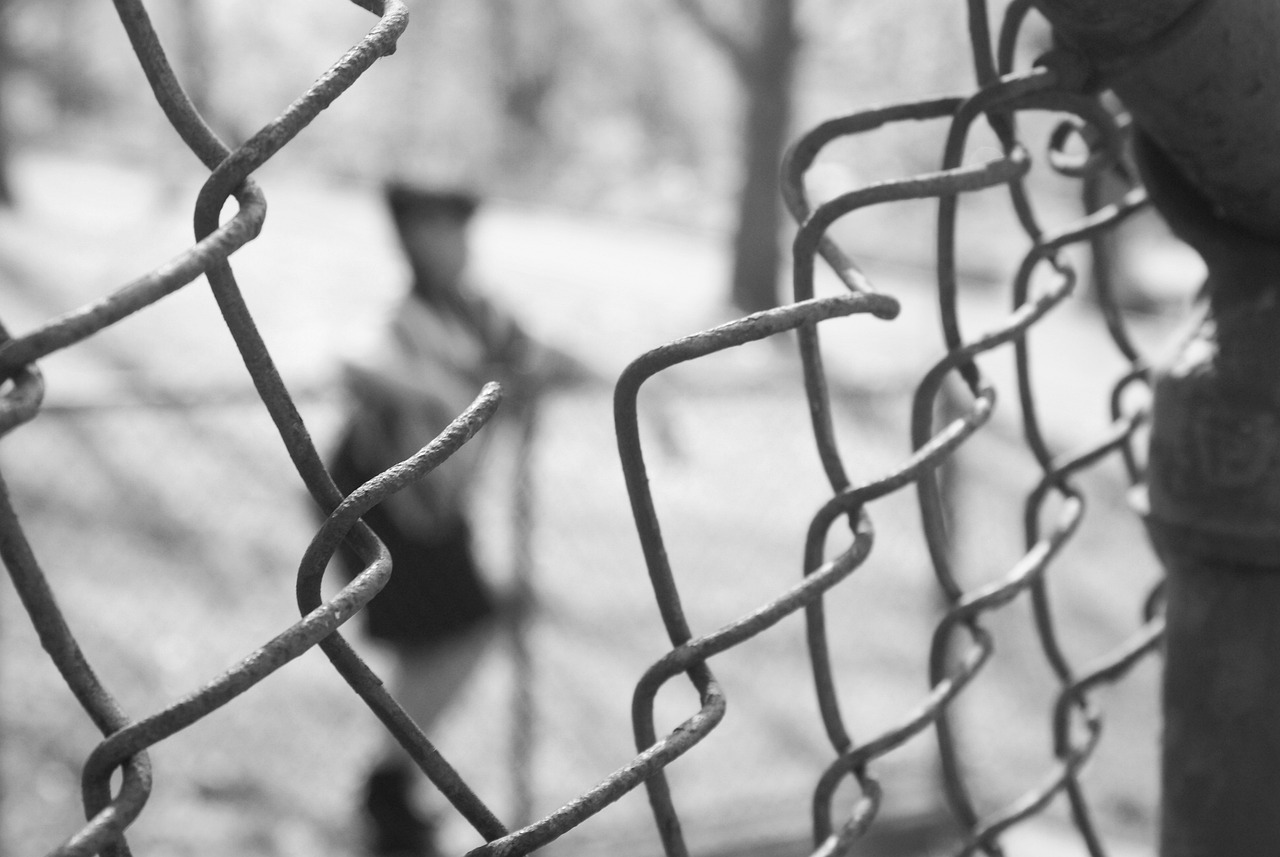
Modern Philosophical Perspectives
In the ever-evolving landscape of global politics, the philosophical discourse surrounding humanitarian interventions has become increasingly complex and nuanced. Today, we find ourselves at a crossroads where traditional notions of sovereignty clash with the pressing need for human rights protection. This tension raises profound questions: What is our moral obligation to intervene in the affairs of another state? Can we justify military action under the guise of humanitarianism, and if so, under what conditions?
Modern philosophical perspectives on humanitarian interventions often draw from a rich tapestry of ethical theories. One of the most significant contributions comes from the realm of utilitarianism, which advocates for actions that maximize overall happiness. Proponents argue that interventions should be justified if they lead to a greater good, such as saving lives or alleviating suffering. However, this perspective is not without its critics. Detractors point out that utilitarianism can sometimes overlook the rights of individuals, leading to decisions that prioritize the many over the few. For instance, the justification of military action in Libya in 2011 was framed around the potential to save lives, yet the long-term consequences have raised questions about the efficacy and ethicality of such interventions.
Another vital perspective comes from deontological ethics, which emphasizes the importance of duty and moral principles over the outcomes of actions. This approach posits that there are certain moral imperatives, such as the obligation to protect innocent lives, that must guide our actions, regardless of the consequences. The challenge here lies in defining what constitutes a moral duty and who bears the responsibility for carrying it out. Can we hold nations accountable for inaction when atrocities unfold? This question remains at the forefront of philosophical debates regarding the legitimacy of humanitarian interventions.
Moreover, the concept of cosmopolitanism has gained traction in modern discussions. Cosmopolitan philosophers argue for a global moral community where individuals are citizens of the world, transcending national boundaries. This perspective posits that humanitarian interventions are not only permissible but necessary when a state fails to protect its citizens. However, critics of cosmopolitanism warn against the potential for imperialistic motives disguised as altruism, raising concerns about who decides when and where to intervene.
To further illustrate these perspectives, consider the following table that summarizes key philosophical arguments regarding humanitarian interventions:
| Philosophical Perspective | Key Argument | Critique |
|---|---|---|
| Utilitarianism | Actions should maximize overall happiness. | May overlook individual rights. |
| Deontological Ethics | Emphasizes moral duties and principles. | Challenges in defining moral obligations. |
| Cosmopolitanism | Advocates for a global moral community. | Risks of imperialistic motives. |
As we navigate these philosophical waters, it becomes clear that the morality of humanitarian interventions cannot be boiled down to simple yes or no answers. Each situation presents its unique challenges and ethical dilemmas that require careful consideration and a willingness to engage in open dialogue. The modern philosophical landscape encourages us to question our assumptions and consider the broader implications of our actions on the global stage.
Ultimately, the discourse surrounding humanitarian interventions is not just an academic exercise; it has real-world implications that affect countless lives. As we grapple with these complex issues, it is imperative that we remain vigilant and committed to fostering a world where human rights are upheld, and the moral obligations to protect the vulnerable are taken seriously.
- What is humanitarian intervention?
Humanitarian intervention refers to the use of military force by a state or group of states to prevent or stop widespread suffering or human rights violations in another state. - What are the ethical justifications for intervention?
Ethical justifications often include utilitarian arguments for maximizing overall good, deontological duties to protect human rights, and cosmopolitan views that advocate for global citizenship. - How does international law address humanitarian interventions?
International law provides frameworks like the Responsibility to Protect (R2P) doctrine, which outlines when and how states can intervene for humanitarian purposes. - What are the risks of humanitarian interventions?
Risks include potential violations of sovereignty, unintended consequences, and the possibility of exacerbating conflicts rather than resolving them.

The Role of International Law
International law plays a crucial role in shaping the framework within which humanitarian interventions occur. It serves as the backbone of state interactions, providing a set of rules and norms that govern how nations respond to crises, particularly when human rights are at stake. Yet, the relationship between international law and humanitarian interventions is complex and often contentious. On one hand, international law seeks to protect state sovereignty, while on the other, it emphasizes the need to safeguard human rights. This duality raises important questions: How do we reconcile the need for intervention with respect for sovereignty? And what legal grounds justify intervention in the first place?
One of the most significant legal principles that have emerged in this context is the concept of the Responsibility to Protect (R2P). R2P posits that states have a responsibility to protect their populations from genocide, war crimes, ethnic cleansing, and crimes against humanity. If a state fails to protect its citizens, the international community has a moral and legal obligation to intervene. This principle, however, is not without its critics. Some argue that R2P can be misused as a pretext for military intervention, undermining the sovereignty of nations. Others contend that the lack of a clear legal mechanism for intervention often leads to inaction when it is most needed.
The philosophical debates surrounding R2P are deeply intertwined with international law. For instance, proponents argue that the moral imperative to prevent suffering outweighs the traditional respect for state sovereignty. They contend that in a globalized world, where human rights transcend borders, international law must evolve to reflect these realities. Critics, however, warn that such an approach could lead to a slippery slope where powerful nations impose their will under the guise of humanitarianism, potentially exacerbating conflicts rather than resolving them.
In addition to R2P, other legal frameworks also influence humanitarian interventions. The Geneva Conventions, for example, set the standards for humanitarian treatment during war, while various treaties outline the obligations of states to protect human rights. Yet, despite these frameworks, the enforcement of international law remains a significant challenge. The lack of a centralized authority to enforce compliance often leads to selective interventions, where some crises receive international attention while others are neglected.
To illustrate the complexities involved, consider the following table that summarizes key legal instruments related to humanitarian interventions:
| Legal Instrument | Key Focus | Impact on Interventions |
|---|---|---|
| Responsibility to Protect (R2P) | Protection against genocide, war crimes, etc. | Justifies intervention if a state fails to protect its citizens. |
| Geneva Conventions | Humanitarian treatment in warfare | Sets standards for humane treatment, influencing military conduct. |
| International Human Rights Treaties | Protection of individual rights | Establishes obligations for states to uphold human rights. |
Ultimately, the role of international law in humanitarian interventions is a balancing act. It strives to protect human rights while respecting state sovereignty, but the effectiveness of this balance often hinges on the political will of the international community. As we navigate the complexities of global governance, it is essential to engage in ongoing discussions about the ethical implications of intervention, the responsibilities of states, and the necessity for reform in international legal frameworks.
- What is the Responsibility to Protect (R2P)? R2P is a global political commitment to prevent genocide, war crimes, ethnic cleansing, and crimes against humanity.
- How does international law affect humanitarian interventions? International law provides the framework for interventions, balancing the need to protect human rights with respect for state sovereignty.
- What are the challenges of enforcing international law? The main challenges include lack of centralized enforcement authority and selective application of legal norms.

Responsibility to Protect (R2P)
The concept of Responsibility to Protect (R2P) emerged in the early 2000s as a groundbreaking principle aimed at addressing the international community's obligation to prevent atrocities. This doctrine asserts that states have a responsibility to protect their populations from genocide, war crimes, ethnic cleansing, and crimes against humanity. If a state fails to fulfill this duty, the international community has the right to intervene, using diplomatic, humanitarian, and, as a last resort, military means. But what does this really mean for global governance and human rights?
At its core, R2P challenges the traditional notion of state sovereignty. Instead of viewing sovereignty as an absolute right, R2P reframes it as a responsibility. This shift raises crucial philosophical questions: When does intervention become justifiable? Who decides when a state has failed in its duty? And how do we balance the imperatives of intervention against the potential for abuse of power? These questions are not merely academic; they resonate deeply with the realities of our world today.
The R2P doctrine is grounded in three pillars:
- Prevention: The first and foremost responsibility lies in preventing mass atrocities. This involves addressing the root causes of conflict, promoting human rights, and fostering conditions that discourage violence.
- Reaction: If prevention fails, the international community must be prepared to respond. This can take various forms, from diplomatic pressure to economic sanctions, and ultimately, military intervention if necessary.
- Rebuilding: After an intervention, the focus shifts to rebuilding and ensuring that the conditions that led to the crisis do not recur. This includes supporting governance, promoting reconciliation, and facilitating development.
Despite its noble intentions, R2P has faced significant challenges in its implementation. For instance, the Libya intervention in 2011 was initially framed as a humanitarian effort to protect civilians from Muammar Gaddafi's regime. However, the aftermath raised concerns about the long-term consequences of such interventions and the potential for overreach. Critics argue that R2P can sometimes serve as a guise for pursuing national interests under the pretext of humanitarianism.
Moreover, the effectiveness of R2P is often hampered by political considerations within international organizations like the United Nations. The veto power held by the five permanent members of the UN Security Council can stymie collective action, leading to inaction in the face of egregious human rights violations. This highlights a critical philosophical dilemma: how can we reconcile the need for timely intervention with the realities of international politics?
In conclusion, while the Responsibility to Protect doctrine represents a significant evolution in our understanding of state sovereignty and humanitarian intervention, its implementation remains fraught with challenges. It compels us to reflect on our moral obligations as a global community and the complexities of translating ethical principles into action. As we navigate the turbulent waters of international relations, R2P serves as both a beacon of hope and a reminder of the responsibilities we share towards one another.
- What is the primary goal of R2P? The primary goal is to ensure that states protect their populations from mass atrocities and, if they fail, to enable the international community to intervene.
- How does R2P differ from traditional notions of sovereignty? R2P redefines sovereignty as a responsibility rather than an absolute right, emphasizing the duty of states to protect their citizens.
- What challenges does R2P face in implementation? Challenges include political considerations within international bodies, the potential for misuse, and the complexities of international law.
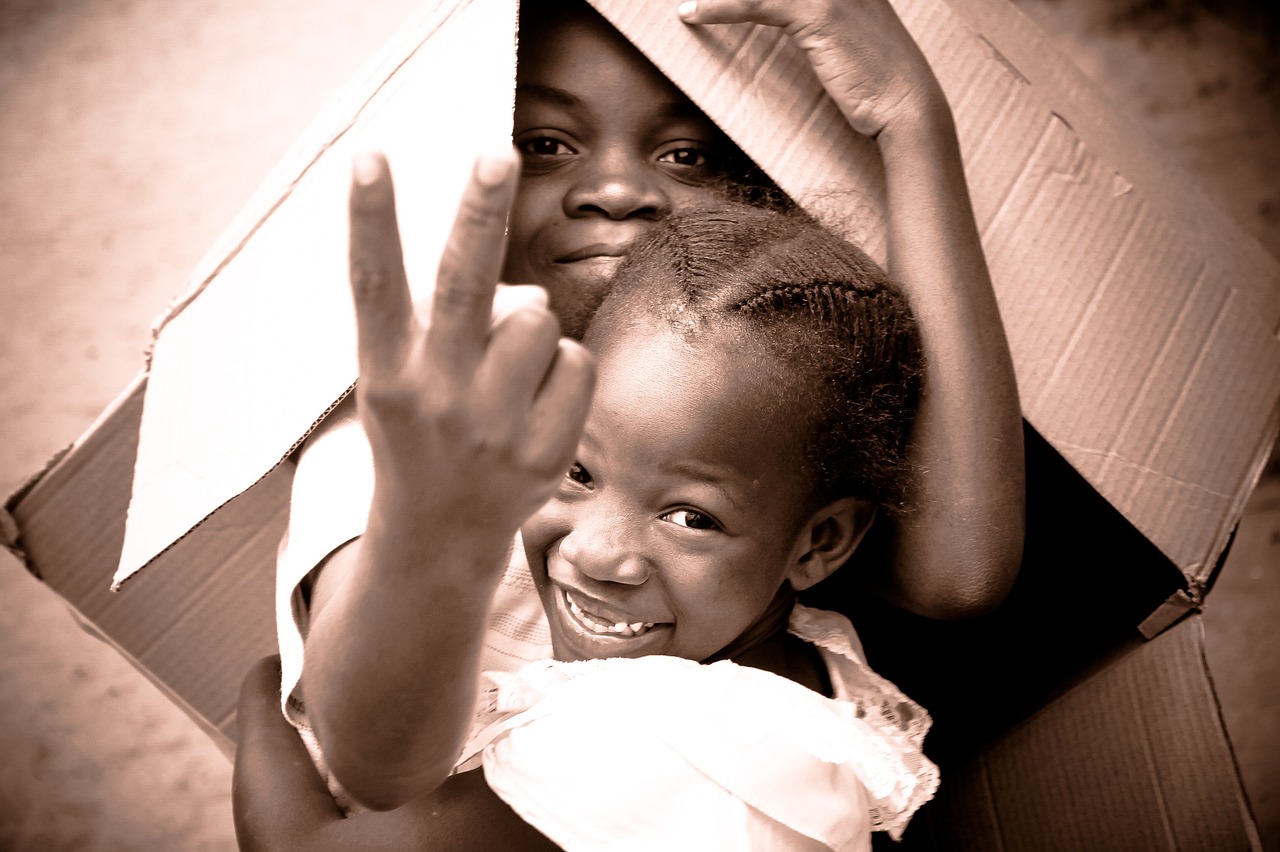
Critiques of International Law
International law is often heralded as the backbone of global governance, providing a framework for states to navigate their interactions and responsibilities toward one another. However, it is not without its critics. Many argue that international law, particularly in the context of humanitarian interventions, is fraught with limitations that can undermine its effectiveness. One significant critique is the inherent tension between state sovereignty and the obligation to protect human rights. Critics argue that the principle of sovereignty often acts as a shield for oppressive regimes, allowing them to evade accountability for atrocities committed within their borders.
Moreover, the selective enforcement of international law raises eyebrows. Why do some interventions receive widespread support while others are met with indifference? This inconsistency can lead to perceptions of bias, where powerful nations may intervene in some conflicts while ignoring others based on strategic interests rather than humanitarian needs. For example, the military interventions in Libya and Syria have been scrutinized for their motivations and outcomes. Critics argue that these actions often reflect the geopolitical interests of intervening states rather than a genuine commitment to humanitarian principles.
Another critique centers on the effectiveness of international law in achieving its intended goals. The failure to prevent genocides, such as in Rwanda, highlights the limitations of legal frameworks that rely on the goodwill of states to act. The question arises: if international law cannot compel action in the face of mass atrocities, what good is it? This leads to a broader philosophical debate about the role of law in a world where power dynamics often dictate outcomes, rather than adherence to legal norms.
Furthermore, the complexities of enforcing international law can lead to unintended consequences. Military interventions, often justified under the guise of humanitarian aid, can exacerbate conflicts and lead to further suffering. The aftermath of such interventions frequently results in power vacuums, where extremist groups can thrive, complicating the original humanitarian intentions. This paradox raises critical questions about whether the legal frameworks in place are sufficient to guide ethical decision-making in the realm of international relations.
As we reflect on these critiques, it becomes clear that while international law serves as a crucial tool for addressing humanitarian crises, it is not a panacea. The philosophical implications of these critiques suggest a need for a more nuanced understanding of the interplay between law, morality, and power in global governance. A more comprehensive approach may involve not only revising existing legal frameworks but also fostering a global culture that prioritizes human rights over state interests.
- What is the main criticism of international law in humanitarian interventions? The main criticism is that international law often prioritizes state sovereignty over human rights, allowing oppressive regimes to escape accountability.
- Why is the enforcement of international law considered selective? Enforcement is selective because powerful nations may choose to intervene in certain conflicts based on strategic interests rather than humanitarian needs.
- How can international law lead to unintended consequences? Military interventions justified by humanitarian concerns can exacerbate conflicts and create power vacuums, leading to further suffering instead of resolution.
- What philosophical questions arise from critiques of international law? These critiques prompt questions about the effectiveness of legal frameworks, the balance between law and morality, and the role of power dynamics in shaping international relations.
Frequently Asked Questions
- What are humanitarian interventions?
Humanitarian interventions are actions taken by states or international organizations to prevent or stop widespread suffering or human rights violations in another state. These interventions can include military action, economic sanctions, or diplomatic efforts aimed at protecting civilians and restoring peace.
- What ethical principles guide humanitarian interventions?
The ethical principles that guide humanitarian interventions often include concepts such as just war theory, which assesses the morality of engaging in war, and the moral responsibility to protect vulnerable populations. The balance between state sovereignty and human rights is also a critical consideration, raising questions about when it is justified to intervene.
- Can you provide examples of historical humanitarian interventions?
Yes! Some significant historical humanitarian interventions include the NATO intervention in Kosovo in 1999, the U.S. invasion of Iraq in 2003 under the pretext of humanitarian concerns, and the international response to the Rwandan genocide in 1994. Each of these events sparked debates about the legitimacy and effectiveness of intervention.
- What lessons were learned from the Rwandan genocide?
The Rwandan genocide highlighted the critical need for timely interventions and the moral obligations of the global community to act against atrocities. It underscored the importance of having proactive measures in place to prevent such crises and the necessity of improving international response mechanisms.
- What is the Responsibility to Protect (R2P) doctrine?
The Responsibility to Protect (R2P) is a global political commitment that aims to prevent genocide, war crimes, ethnic cleansing, and crimes against humanity. It asserts that states have the responsibility to protect their populations, and if they fail, the international community has the obligation to intervene, using diplomatic, humanitarian, and, as a last resort, military means.
- What are the critiques of international law regarding humanitarian interventions?
Critics argue that international law often falls short in facilitating effective humanitarian interventions due to issues of state sovereignty and the power dynamics involved in enforcement. There are concerns about the selective application of international law and the challenges in reaching consensus among nations, which can hinder timely action during crises.
- How do modern philosophical perspectives influence humanitarian interventions?
Modern philosophical perspectives contribute to the debate on the morality and legality of humanitarian interventions by examining various ethical frameworks. These perspectives challenge traditional views on state sovereignty and encourage a more nuanced understanding of global responsibilities, emphasizing the need for a balance between national interests and humanitarian obligations.


